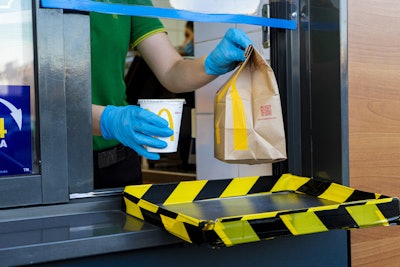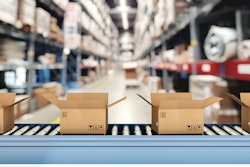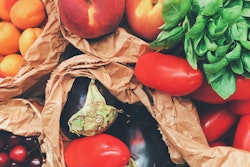
McDonald’s Corporation has announced a global partnership with TerraCycle’s circular packaging service, Loop, to test a new reusable cup model for hot beverages. The initiative, which will first be trialed in 2021 across select McDonald’s restaurants in the UK, helps customers enjoy their favorite McDonald’s hot drink in a reusable cup, while cutting down on packaging waste. The model marks significant progress toward innovative circular packaging solutions that help protect the planet for communities today, and in the future.
This unique new partnership will conveniently allow customers to reduce waste by choosing a durable Loop-created cup, for a small deposit. The deposit can then be redeemed by returning the cup to participating McDonald’s UK restaurants in order to be safely washed through the Loop system and reused again in McDonald’s restaurants.
“We’re on a journey to rethink how we package products to give customers options that reduce waste, maintain the highest safety standards, and enhance the McDonald’s experience they expect and enjoy. That’s an innovation challenge, and it’s one we think the Loop model has potential to help us solve,” said Jenny McColloch, Vice President, Global Sustainability, McDonald’s Corporation. “Our commitment to communities is one of our core values as a company, and this pilot will generate important local insights and lessons to share along the way. We’re excited to assess how new reusable packaging models could work within our system as we accelerate circular packaging solutions with our partners around the globe.”
Additionally, the Loop partnership meets McDonald’s cleanliness and safety standards, which have only become more important throughout the COVID-19 pandemic. Loop’s cleaning systems have been scientifically developed, in partnership with Ecolab, to sanitize each item, which means each cup is hygienically cleaned before each use, making it as safe and hygienic as single-use cups.
“This groundbreaking partnership with McDonald’s enables Loop to greatly expand its reach by bringing convenient reusable packaging options to the food service industry,” said TerraCycle and Loop CEO, Tom Szaky. “The partnership paves the way for reusables to become an accessible option for consumers as they enjoy their meal on the go.”
The Loop initiative aligns with McDonald’s continued investments to test and scale circular solutions for cups around the world including the “Recup” system in Germany, and exploration into fully recoverable hot and cold fiber cups and reusable cup systems through a partnership with the NextGen Cup Challenge in the United States.
This work alsobuilds on progress McDonald’s has already made to recycle paper cups in multiple markets. Almost all of McDonald’s restaurants across the UK now have recycling units for hot and cold paper cups. The paper cups are sent to specialist recycling centers where the plastic lining is removed from the fiber, which is then recycled into new products. As a member of the UK Paper Cup Coalition, McDonald’s has invested in a scheme run by Valpak that incentivizes more waste companies to collect paper cups for recycling.
“If we’re going to curb the plastic waste crisis we need to invest in data driven strategies that reduce our demand for virgin plastic,” said Erin Simon, Head, Plastic and Business at World Wildlife Fund. “For McDonald’s and the larger food and beverage sector, reuse will be one component of any reduction strategy. As a society we need to ensure the plastics we use today are the plastics we’ll be able to use again in the future.”
As the world’s largest restaurant company, McDonald’s has the responsibility and opportunity to take action on some of the most pressing social and environmental challenges in the world. McDonald’s remains committed to its journey to rethink how products are packaged and to give customers the sustainable solutions they want. These circular packaging models have the potential to be transformative for customers and communities, and ultimately can have a significant impact on the planet.

















